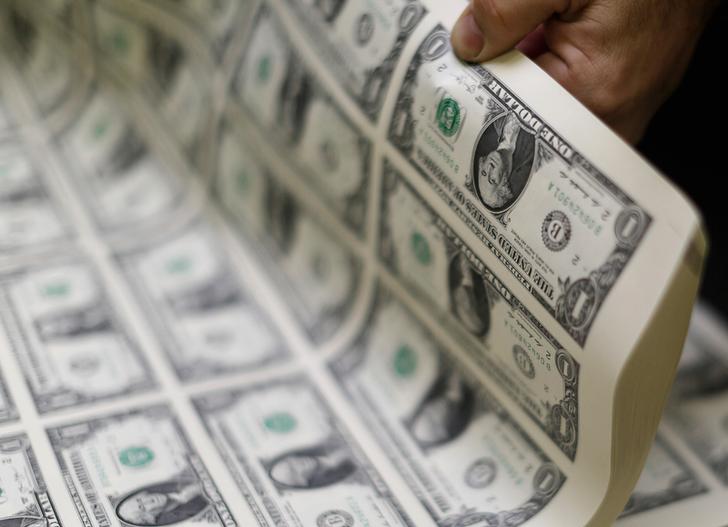Ending Egypt's currency black market brings new challenges

By Stephen Kalin and Nadia El Gowely
CAIRO (Reuters) - Egypt's currency black market, a thorn in the side of successive governments, has virtually disappeared in the past two months following a central bank crackdown.
Yet, while the authorities hope this will signal to foreign investors that the economy has returned to normal after four years of turmoil, Egyptian businesses are suffering.
Importers and exporters in particular say official measures to cap dollar deposits at Egyptian banks have reduced foreign exchange liquidity and stifled business activity -- without achieving long-term stability in the currency market.
The black market had flourished as a slump in tourism and investment since the overthrow of Hosni Mubarak in 2011 limited supply of hard currency -- undermining an image of relative price stability that authorities have sought to portray for decades.
After promising for months to eliminate the black market, the central bank in February placed limits on dollar-denominated bank deposits of $10,000 a day and $50,000 a month, soon after weakening the pound by 5 percent over a few weeks.
The spread between the official and black market rates, above 10 percent two years ago, sank to virtually zero. Since then, the pound has been officially trading between banks at 7.53 to the dollar.
Black market traders say volumes have fallen dramatically since the cap on deposits was introduced, with those who exchanged dollars outside official channels deprived of a place to keep their funds.
"(The) measures massacred the currency exchange companies," the manager of a Cairo exchange bureau said. "There is no demand (for dollars)."
The International Monetary Fund welcomed the central bank's measures as a step that will make Egypt more attractive to foreign investors. But many local businesses are struggling to cope.
Mohamed Abu Basha, economist at EFG Hermes, said the deposit cap has made it harder for businesses to open letters of credit.
Demand for dollars from banks has outpaced supply, which businesses say is squeezing the market.
"Since companies cannot really access the parallel market at large, your place on the central bank's priority list becomes really important," said Abu Basha.
The central bank, which declined to comment, emphasizes strategic needs such as food and energy in weekly dollar auctions.
Hard currency for other products is lower priority, which businessmen complain has hurt commercial enterprises, especially those that import costly goods like cars and electronics goods.
Medhat Khalil, chief executive of Raya Holding which imports computers and telecommunications equipment, said the central bank's failure to supply currency to importers like him has slowed down business.
"We are importing, nobody will stop," he told Reuters. "(But) I'm spending most of my time finding ways to bypass the rules and regulations instead of concentrating on my business," he told Reuters, referring to the cap on dollar deposits.
SQUEEZING BUSINESS
The IMF's Middle East and Central Asia director, Masood Ahmed, said last week that the central bank's measures to stamp out the black market "would help to create the basis for more investment, and better functioning of the exchange markets."
Black market trading helped drive down the official exchange rate by 22 percent since late 2012 when the central bank introduced an auction system for dollars to ration hard currency. Sharp currency depreciations jeopardize Egypt's ability to import staples like wheat and gas.
However, the Cairo Chamber of Commerce, which counts 800,000 importers among its members, says introducing a deposit cap has reduced the supply of items like fertilizers, or forced companies to raise consumer prices, and has called for its removal.
Effat Abdelatty, head of the chamber's automobiles division, said car imports have dropped 70-80 percent since the cap was introduced, although inventories and generous terms from suppliers have so far prevented the shortage from affecting consumers.
Analysts say that with dollar demand outstripping supply, the pound should depreciate further -- some estimate by up to 10 percent -- so availability is likely to concern investors more than price.
Administrative measures are only part of the equation. To restore foreign exchange liquidity in the long run, Egypt will need sustained economic growth, which the government has said requires investments of up to $300 million.
(Editing by Michael Georgy and Susan Fenton)









facebook comments